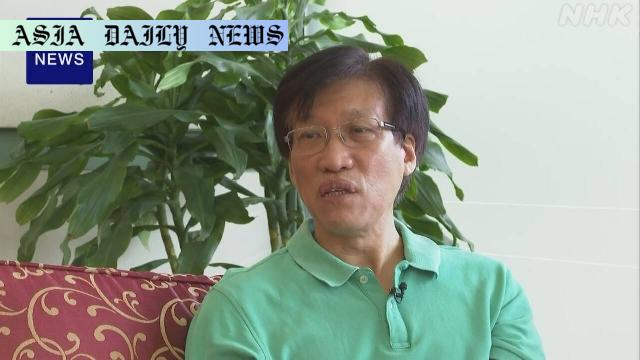Macao: A former pro-democracy lawmaker, Au Kam San, has been arrested on suspicion of colluding with foreign forces, raising concerns.
- Former pro-democracy lawmaker Au Kam San arrested in Macao.
- Authorities allege collusion with foreign forces and inciting hatred.
- Raises concerns about freedom and the national security law’s scope.
- President Xi Jinping reaffirms hardline approach against dissent.
- Set against backdrop of upcoming legislative elections and prior candidate restrictions.

Chinese Governance Expands Its Grip in Macao
The recent arrest of Au Kam San, a widely respected pro-democracy figure in Macao, has sparked intense scrutiny both locally and globally. The 68-year-old former lawmaker, who served for two decades in the legislative assembly, was taken into custody by Macao authorities on accusations of collusion with foreign powers. Allegedly, these activities stoked anti-Beijing sentiment, breaching the national security law. Observers have noted that this is the first public arrest under the security legislation that Macao adopted in 2009, which bears resemblance to Hong Kong’s deeply controversial national security law enacted in 2020.
Au Kam San’s arrest highlights the increasing constraints on dissent in the region. Known for advocating for freedom and democracy, Au often aligned himself with causes sensitive to the Chinese Communist Party, such as commemorating the victims of the 1989 Tiananmen Square massacre. His efforts consistently brought global attention to the political suffocation many activists face in Macao, a territory often overshadowed by the higher-profile developments in neighboring Hong Kong.
National Security Law and Its Implications
Reactions to Au’s detention have ranged from concern to outrage, as critics argue that the widening interpretation of the national security law undermines fundamental freedoms. On the surface, the law claims to ensure territorial unity and safety, but political analysts suggest that it serves as a mechanism to stifle legitimate dissent. As seen in Hong Kong, provisions within these laws often lack clarity, allowing authorities to interpret them without judicial checks. In Macao, this approach has now found its footing, marking a significant shift away from its historically lenient governance compared to its neighboring regions.
Aside from local implications, Au’s arrest raises questions about the role of foreign governments and institutions in supporting pro-democracy movements. International groups have voiced dissent against Beijing’s tightening grip over both Hong Kong and Macao. Critics see the timing of this arrest—just months before legislative elections—as a deliberate attempt to deter opposition voices, reminiscent of China’s hardline stance during Hong Kong’s political unrest in past years.
President Xi Jinping’s Vision for Macao and National Unity
The developments in Macao mirror President Xi Jinping’s broader views on governance and national unity. At the 25th anniversary of Macao’s return to Chinese sovereignty, Xi reaffirmed the importance of implementing Beijing’s complete jurisdiction over semi-autonomous regions. He clearly emphasized that no deviations from this principle would be tolerated, underscoring his administration’s zero-tolerance policy on dissent or democratic challenges to Communist Party rule.
While Beijing views such policies as insulating the nation from instability, they come with significant international backlash. Relations between China and Western democracies face strain as high-profile cases like Au Kam San’s arrest underscore conflicting ideologies. For local activists, however, the global response often feels insufficient to counteract Beijing’s aggressive moves against their democratic aspirations.
The Future of Democracy in Macao
The immediate future looks troubling for pro-democracy advocates in Macao. The comprehensive barring of opposition candidates in legislative elections has heavily restricted political diversity. Au’s arrest reflects a larger strategy to ensure the near-complete elimination of dissenting voices in governance. This could set a dangerous precedent and further embolden authorities to target dissenters ahead of the September elections.
Macao’s residents face a crossroads, caught between Beijing’s increasingly intrusive policies and international debates over how to engage effectively with China on human rights. Activists, while few in number in Macao compared to Hong Kong, continue to push for freedom of expression, often finding themselves at odds with laws that criminalize activities deemed threatening to the Chinese state.



Commentary
A Concerning Trend in Macao
The arrest of pro-democracy lawmaker Au Kam San in Macao signifies more than a singular enforcement of the national security law—it represents a darker shift in the region’s political landscape. While Macao has often been perceived as quieter than its counterpart Hong Kong, this action shows that Beijing’s scrutiny and hardline approaches extend far and wide. Au’s arrest may impact not just political activists but the ordinary citizens of Macao who trust in the fundamental freedoms assured at the territory’s retrocession in 1999.
National Security or Suppression?
The Chinese government has consistently defended the national security laws as necessary tools to protect sovereignty. However, these laws often appear to have less to do with security and more to do with eradicating dissent. Citizens expressing peaceful opinions should not equate to undermining national security. Au Kam San, through his acts of remembrance for the Tiananmen Square victims or advocating for democratic rights, became a figure whose activism, in another context, would be celebrated rather than criminalized.
Global Responsibility
Internationally, this issue raises questions around accountability. How should nations committed to democracy and human rights engage with a nation-state that often prioritizes political conformity over freedom? Responses from global democracies remain fractured and measured, often out of concern for economic dependencies on China. These calculations, while strategic, feel insufficient to those risking their safety for basic freedoms in territories like Macao and Hong Kong.
It is imperative that international organizations and democratic nations magnify attention to cases such as this and push for diplomatic action targeting political suppression. For Macao’s pro-democracy advocates, solidarity from the global community offers a semblance of hope amid the challenges they confront daily.